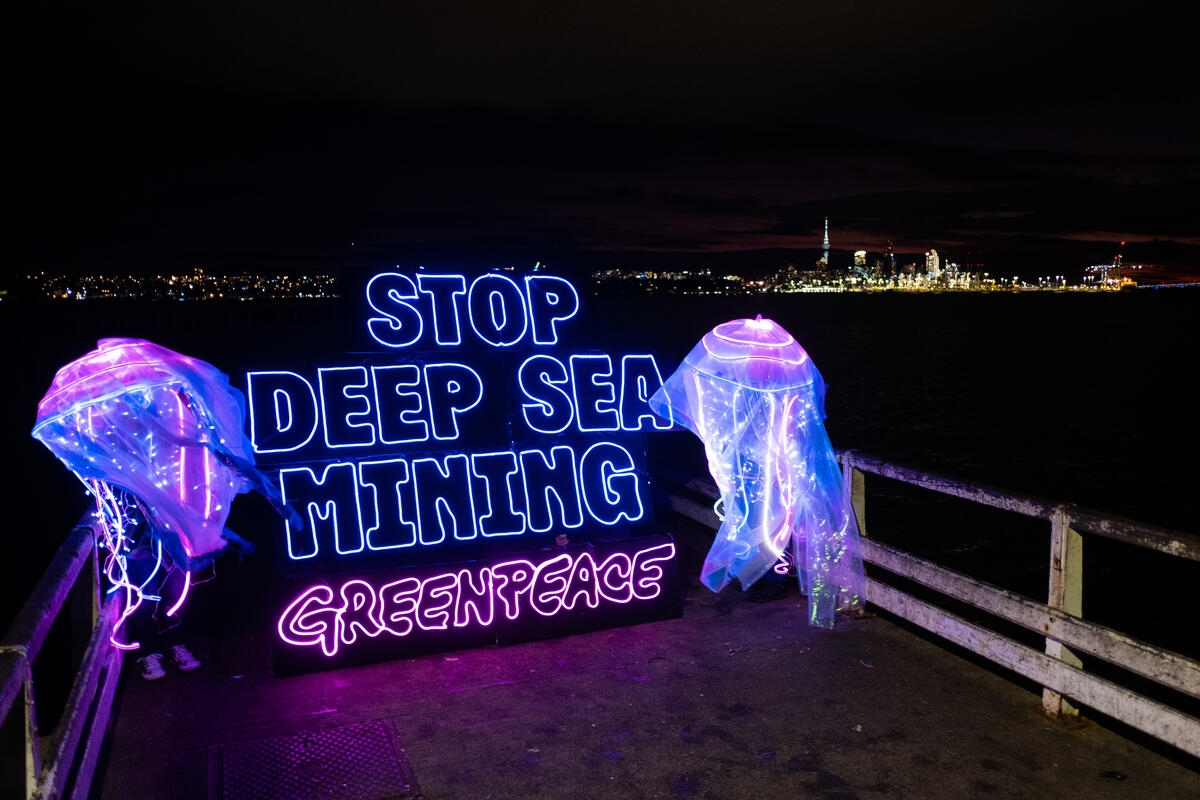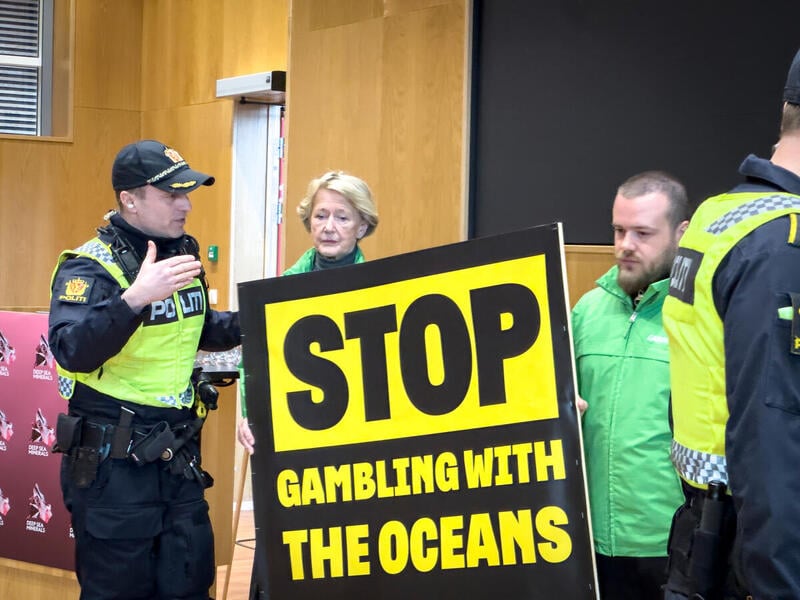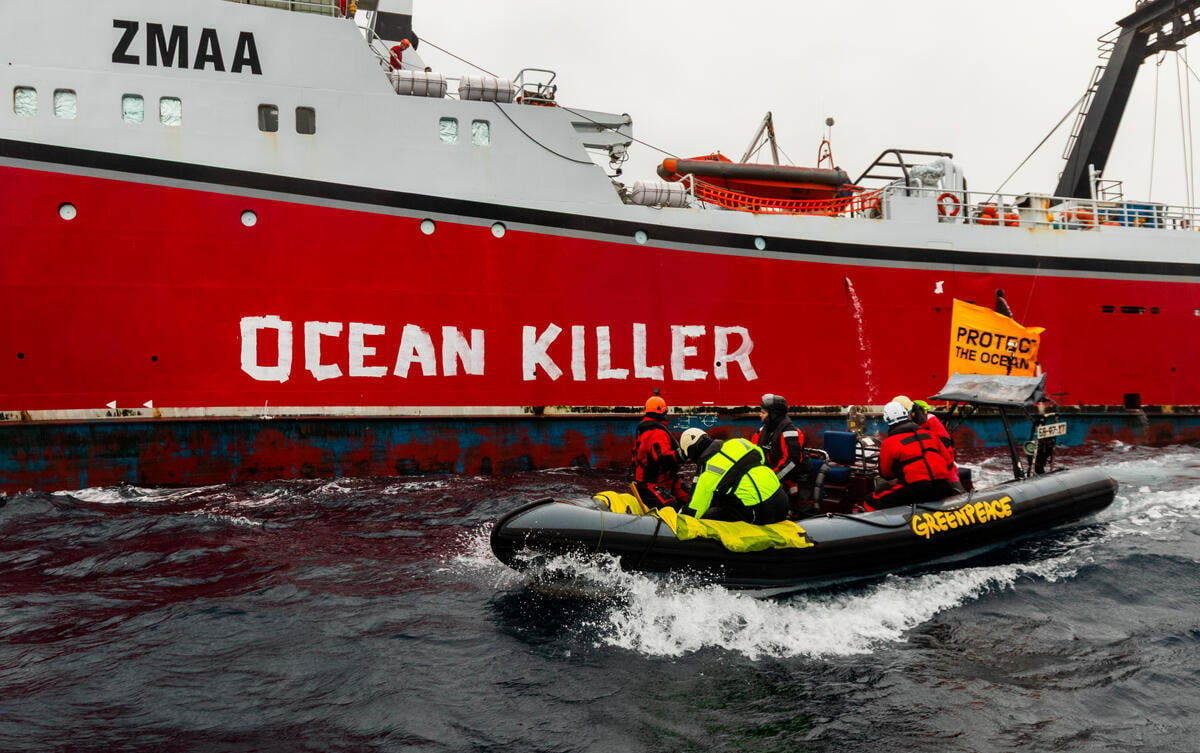Kingston, Jamaica – The 28th Session of the International Seabed Authority starts today with world delegates gathering in Kingston, Jamaica less than two weeks after the Global Ocean Treaty was agreed at the United Nations. The meeting is a critical moment for the future of the oceans as deep sea mining companies are rushing the start of this risky industry.
Sebastian Losada, Senior Oceans Policy Adviser, Greenpeace International said: “Which governments would want to undermine the achievement of this Treaty by giving a greenlight to deep sea mining so soon after this historic success in New York? We’ve come to Kingston to say loud and clear that deep sea mining is not compatible with a sustainable and fair future. Science, businesses and Pacific campaigners have already said it’s not. The same States that completed negotiations to protect the oceans must now draw a line and ensure that the deep sea is protected from mining. They can’t allow this reckless industry to go ahead”.
The ISA’s mandate is to preserve the international seabed and control all mineral-related activities [1] . However, the deep sea mining industry has forced governments’ hands, using an obscure and controversial legal loophole to set an ultimatum for governments. In 2021, the president of Nauru together with The Metals Company’s subsidiary Nauru Ocean Resources, triggered the “two-year rule” that puts pressure on governments at the ISA to allow deep sea mining to start by July 2023 [2].
“The 2 year-ultimatum puts the interests of the few over the many and would make it impossible for governments to fulfil their key obligation to protect the oceans. This makes it even more urgent to adopt a moratorium on deep sea mining. Many governments have voiced unease at pressure to rush vital political negotiations over equity and ocean health. The future of half the surface of the planet has to be decided in the best interests of humanity – not the timeframe imposed by a company running out of cash,” Losada said.
Greenpeace ship Arctic Sunrise arrived in Kingston early this morning. Joining the crew and Greenpeace delegation are Pacific activists campaigning on deep sea mining who have not previously been given a platform at the ISA meeting to express their views, despite this being a decision that could shape their future. These activists will participate as observers in the ISA meeting and will address governments directly [3].
Alanna Matamaru Smith from Te Ipukarea Society on board the Arctic Sunrise said:
“Our ancestors have taught us the value of being ‘Mana Tiaki’, guardians where we protect our natural resources for the future generations. Back home in the Cook Islands we are actively working with local communities to raise awareness about the environmental impacts of mining the seabed, whilst working towards a moratorium. To be here and voice our concerns as a collective indigenous delegation from the pacific is a well overdue opportunity the ISA has been missing over the duration of their meetings.”
Governments must push back on this timeline set by this controversial ultimatum in the next two weeks and ensure mining doesn’t go ahead in the next few months. But deep sea mining will continue to pose a threat even after the two year deadline, and countries must work for a moratorium on deep sea mining, which could be agreed at the ISA Assembly made up of 167 States plus the European Union. The next ISA Assembly meeting will take place in July 2023 in Kingston, Jamaica.
ENDS
Photo and video content available in the Greenpeace Media Library.
Notes
[1] The U.N. Convention on the Law of the Sea established the ISA in 1994 to regulate activities in the seabed in international waters, which it declared “the common heritage of mankind”.
[2] This request was made under paragraph 15 of Section 1 of the Annex to the Agreement relating to the implementation of Part XI of the United Nations Convention on the Law of the Sea which establishes that if any member country notifies the ISA that it wants to start deepsea mining, the organisation will have two years to adopt full regulations, after which time, if the regulations have not been completed, the ISA will have to consider a mining application. The ISA’s deadline to adopt full regulations ends this July, and the legal process after the deadline is passed is subject to political and legal debate.
[3] Pacific activists will also speak at a Greenpeace International side event on 24 March
Contacts
Sol Gosetti, Media Coordinator for the Stop Deep Sea Mining campaign, Greenpeace International: [email protected], +44 (0) 07807352020 WhatsApp +44 (0) 7380845754
Greenpeace International Press Desk: [email protected], +31 (0) 20 718 2470 (available 24 hours)



